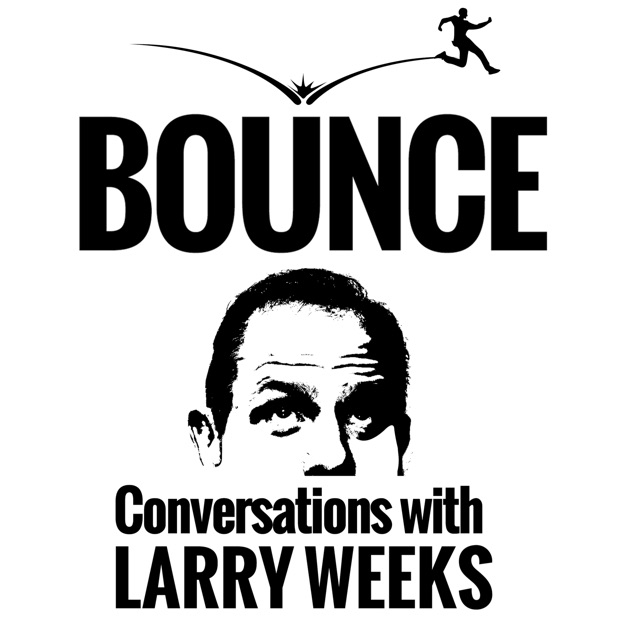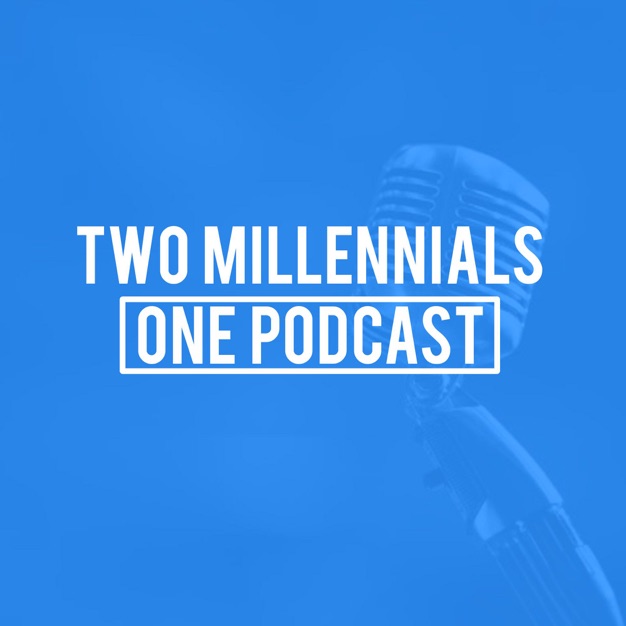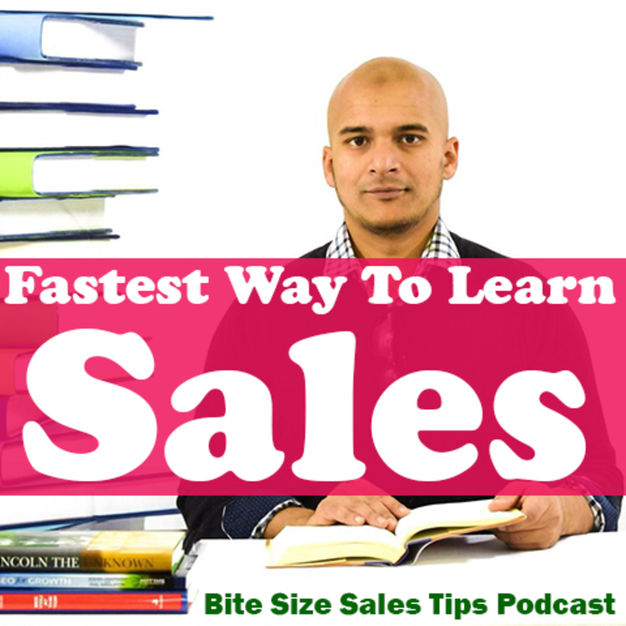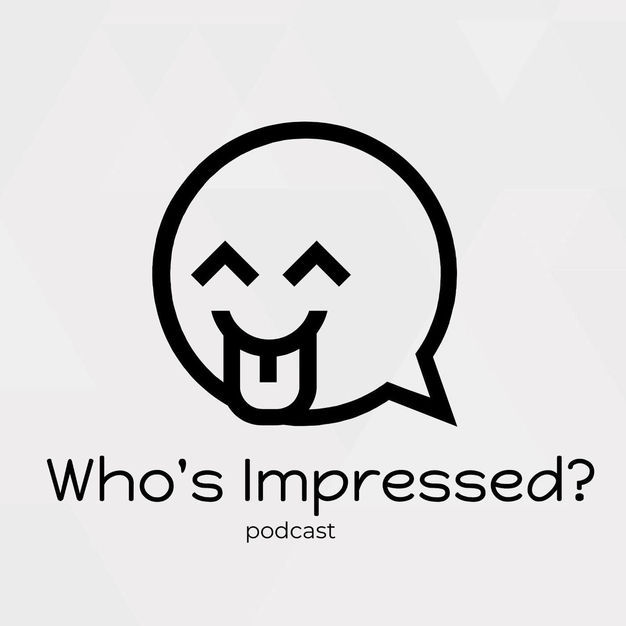
Bounce! Conversations with Larry Weeks
Larry Weeks
Interviews w/ authors, entrepreneurs, athletes and others on resilience, getting on or getting over life’s set ups and setbacks.
- 1 hour 22 minutesEp. 83: Why Depression Exists: Jonathan Rottenberg on the Evolutionary Origins of Mood
In this episode, we explore the human mood system and the origin of depression.
My guest is Dr. Jonathan Rottenberg, Professor of Psychology and Director of the Better Outcomes Laboratory at Cornell University. His work examines long-term functioning and well-being after depression and related conditions, with a particular focus on explaining why some people achieve good outcomes. He received his BA from Harvard University, an MA in History from Johns Hopkins University, and his PhD in Psychology from Stanford University. Dr. Rottenberg's research has been covered in popular outlets such as the New York Times, The Washington Post, and the Wall Street Journal. He has authored two books: The Depths: The Evolutionary Origins of the Depression Epidemic (Basic Books) and Depression: What Everyone Needs to Know (Oxford). His most recent digital outreach project is Ever After, a video series about life after depression.
Here are some highlights from our conversation:
- Jonathan's own experience with depression and how it shaped his research and mission
- The evolutionary origins of the mood
- Mood as a system
- The parallels between human and animal depression
- Depression's survival strategy and modern stressors
- Distinctions between ordinary sadness and depression
- Why depression feels permanent—and why it isn't
- Rumination and how it wires the brain for recurring episodes
- The adaptability and resilience of the mood system
- How mindfulness can disrupt depressive thought loops
- Why some achieve 'better outcomes' after struggling with their mental health than others
I think this episode will help many of you see depression and overall negative moods as part of a broader human experience rather than a personal failing. It's a must-listen for anyone interested in a deeper understanding of human emotion and the complex relationship between body, mood, and environment.
Enjoy!
16 December 2024, 10:07 pm - 1 hour 14 minutesEp. 82: The Divided Brain: Iain McGilchrist On How We See The World
In this episode, we explore the fascinating world of the brain’s hemispheres and their profound impact on how we perceive and engage with reality.
My guest is Dr. Iain McGilchrist.
Iain is a true polymath—a psychiatrist, neuroscientist, philosopher, and literary scholar.
He’s been a Fellow of All Souls College at Oxford and an Associate Fellow at Green Templeton College. He’s also a Fellow of the Royal College of Psychiatrists and previously served as Clinical Director at the Bethlem Royal & Maudsley Hospital in London. He’s been a research fellow in neuroimaging at Johns Hopkins and was a Fellow at the Institute of Advanced Studies in Stellenbosch. He is also the author of a number of groundbreaking books, but is best-known for The Master and His Emissary: The Divided Brain and the Making of the Western World and his monumental two-volume work, The Matter with Things: Our Brains, Our Delusions, and the Unmaking of the World.
Iain contends that the way the two hemispheres of the brain operate is fundamentally distinct. It’s not that the hemispheres handle different functions, but that they approach these functions in entirely different ways.
In this episode…
- The Divided Brain
- Attention and Survival
- Hemispheric Differences
- Historical Shifts in Society
- Mental Health and Modern Society
- Black and White Thinking
- Mindfulness and Meditation
- Intuition and Emotion
- The Importance of Open-Mindedness
- Consciousness and the Brain
- The Role of AI and Mechanization
- The Purpose of Life and Evolution
Ian’s ability to weave neuroscience, history, philosophy, and even poetry into a compelling thesis is unparalleled.
Enjoy!
For show notes and more, visit www.larryweeks.com
29 November 2024, 3:38 pm - 46 minutes 10 secondsEp. 81: The Power of Curiosity: A.J. Jacobs on Living the Constitution and Bridging Differences
A.J. Jacobs is a renowned writer and participatory journalist, best known for his immersive, experiment-driven projects that push the boundaries of immersive learning. From living according to the Ten Commandments to exploring radical honesty, A.J. dives headfirst into his experiments, bringing humor and insight into everything he does. His latest endeavor? An exploration of the U.S. Constitution, attempting to live by its original meaning.
A.J. is no stranger to this podcast—this is his second appearance, and if you missed our previous conversation, I highly recommend checking out Life As Experiment: A.J. Jacobs – Lessons From Living On The Edge. It's one of my favorites, offering a deeper dive into A.J.’s life and wild approach to self-experimentation.
In his latest book, The Year of Living Constitutionally: One Man's Humble Quest to Follow the Constitution's Original Meaning, A.J. documents his year-long quest to embody the Constitution in its original context. From carrying a musket in New York City to using a quill pen, he immerses himself in the mindset of the Founding Fathers, bringing history to life in ways you’d never expect.
In this episode, A.J. and I talk about his experiences, the surprises he encountered, and why curiosity is more vital than ever. Whether you're fired up about politics or just curious about how the past continues to shape our present, you’ll love this conversation.
Our conversation includes:
- The role of curiosity in A.J.'s life and work.
- A.J.’s immersive journalism.
- Past experiments like practicing radical honesty.
- Acting "as if"
- Curiosity as key to personal and professional growth.
- A.J.'s latest book and his experiences living 18th-century standards.
- The balance between rights and responsibilities as understood by the Founding Fathers.
- The original intent of free speech, its historical limits on sedition, and its modern implications in the age of social media.
- How the office of the U.S. president has evolved beyond what the Founding Fathers envisioned.
- Strategies for engaging in productive conversations with opposing views.
- Epistemic humility—recognizing that no one is always right.
- The future of society and existential risks, with insights from A.J.'s participation in the Longview Conference.
I hope this episode inspires you to be more open and curious, and question your assumptions. Life is one big experiment—full of choices, tests, and lessons that help us grow and adapt.
Keep exploring!
Enjoy!
For show notes and more, visit www.larryweeks.com
13 September 2024, 6:31 pm - 1 hour 23 minutesEp.80: Your Crypto or Your Life. Nat Eliason: Financial Frenzies and Mindful Living
In this episode, we dig into FOMO and the temptations of quick wins and the importance of psychologically sustainable, long-term work.
My guest is Nat Eliason. Nat is a writer and the author of Crypto Confidential: Winning and Losing Millions in the New Frontier of Finance. Since he started publishing his writing in 2013, his work has been read by millions of people and spun out multiple businesses ranging from a marketing agency to a tea cafe.
It's a wild story. In 2021 Nat set a six-month deadline to make as much money as possible before the birth of his first child, leading him to the world of cryptocurrency. In just a year, he made millions writing code that managed hundreds of millions of other people's money, became an influencer in the space, speaking at de-fi conferences, went through a platform hack, and despite amassing a small fortune, He started to question whether his wealth was truly secure and how long he could keep risking everything on the roller coaster investments his business was actually built on.
- Nat's journey.
- Startup culture and the "white-knuckle" mentality.
- The challenge of productivity optimization.
- Enduring impact of books vs. fleeting content of social media.
- The power law of writing.
- Redefining a relationship with creative work.
- Giving yourself credit for creative output.
- Cryptocurrencies, DeFi, and the real value of blockchain technologies.
- On the money-happiness equation.
- Career shifts, burnout and recovery.
Lots of great life lessons here.
For show notes and more, visit www.larryweeks.com
1 July 2024, 4:10 pm - 1 hour 18 minutesEp.79: Mind and Matter: Christof Koch on What Consciousness Is and How to Expand It
Christof Koch is a pioneering computational neuroscientist and neurophysiologist best known for his groundbreaking work on the neural basis of consciousness. He collaborated with Francis Crick, the co-discoverer of the structure of DNA, to establish a neurobiological framework for understanding consciousness. Christof served as the President and Chief Scientist of the Allen Institute for Brain Science in Seattle and continues his work there as a Meritorious Investigator. He is also the Chief Scientist of the Tiny Blue Dot Foundation in Santa Monica, CA, which funds research aimed at alleviating suffering, anxiety, and other forms of distress in people worldwide.
Christof has authored over five books on consciousness, with his latest being "Then I Am Myself the World: What Consciousness Is and How to Expand It." This book delves into the subject of consciousness through the lenses of physics, psychology, neuroscience, philosophy, and computer science, as well as Christof’s personal experiences exploring his consciousness.
In this episode, Christof dives deep into what might explain the origin of consciousness and existing contradictions. We explore how our minds construct reality, the wonder of experience, and the profound implications of Integrated Information Theory. Christof also reflects on the importance of mindfulness, the power of belief, and the ongoing debate on free will.
Our conversation includes:
- The origin of consciousness and the “Hard Problem
- Integrated Information Theory (IIT)
- How far down the phylogenetic tree consciousness might go
- The mind-body problem: physical structures and subjective experiences
- Panpsychism and how consciousness might be a fundamental aspect of matter.
- Qualities of experience and the perception box
- Mind-melding and the “uber” consciousness
- Why AI or any compute-based system may never be sentient
- The boundaries of consciousness and the dissolution of self
- The notion of "mind at large"
- Christoph’s experiences with psychedelics
- Free will
My hope is that this episode gives you a sense of awe about your mind so that you look at life and your experiences with a bit more wonder.
Enjoy!
For show notes and more, visit www.larryweeks.com
29 May 2024, 6:48 pm - 1 hour 6 minutesEp. 78: Beyond the Apple Legend: Guy Kawasaki on Remarkable Journeys with Remarkable People
Guy Kawasaki is a pioneering figure in Silicon Valley, celebrated marketing icon, and successful serial entrepreneur. Guy was one of the original Apple employees responsible for launching their Macintosh computer line in 1984 - and then revitalizing Apple again in the 90s when it faced market share challenges from Microsoft and IBM. His role at Apple popularized the term evangelism in marketing and technology. He is an executive fellow of the Haas School of Business (UC Berkeley), and host of the popular Remarkable People podcast.
Guy has written over 16 best-selling books, including Wise Guy, The Art of the Start 2.0, The Art of Social Media, Enchantment, and his latest - Think Remarkable: 9 Paths to Transform Your Life and Make a Difference is part of our conversation.
Guy was an absolute delight and game for a wide-ranging chat.
Our conversation points include:
- Guy’s pathfinder career, from an unwilling law student to reluctant med student to passionate business leader.
- On family expectations and perspectives on “quitting.”
- His stint in the jewelry business.
- On selling as a fundamental life skill beyond just business.
- Guy reflects on his time at Apple.
- Working under Steve Jobs.
- The transformation of tech sales.
- Apple’s struggles and resurgence in the 90s
- Guy's innovation of the email newsletter (via listserver) during his second stint at Apple
- Insights into the power of maintaining a positive narrative during Apple's turnaround
- On Artificial Intelligence.
- His views on social media and what he uses now platforms.
- Writing and Podcasting: Guy shares insights into his writing process.
- The resilience of remarkable individuals inspired by stories from his book and podcast.
Guy Kawasaki's story is one of passion pursuit, intellectual curiosity, and a deep-seated desire to make a meaningful impact. His work continues to inspire a new generation of thinkers, innovators, and creators.
Enjoy!
For show notes and more, visit www.larryweeks.com
11 April 2024, 9:16 pm - 1 hour 10 minutesEp. 77: Hit or Miss? Merrick Furst on Business Innovation, Customer Illusion, and the Challenge of Authentic Demand
Outside of the purely physical and physiological, nothing is more challenging than the world of entrepreneurship and business, especially when facing customer indifference and figuring out market demand—the delicate balance between innovation and market reality.
How do you do that?
Professor Merrick L. Furst runs commercialization and new venture creation and directs undergraduate programs and faculty development in the College of Computing at Georgia Tech. Before GT, he was a professor at UC Berkeley, president of the International Computer Science Institute at Berkeley, and CEO of Essential Surfing Gear, Inc., which was sold in 2000, and anti-botnet startup Damballa. Earlier, he was a professor and associate dean at the School of Computer Science at Carnegie Mellon. Mark is also known for seminal research in algorithms, complexity theory, and AI. He co-invented probabilistic circuit analysis and planning graphs, which are considered among the most influential breakthroughs in the field of AI planning.
Merrick is also the author of The Heart of Innovation: A Field Guide for Navigating to Authentic Demand, which is the touchstone for this podcast.
On the show, we discuss the challenges every business faces in creating products that truly meet customer needs.
- A brief chat about AI.
- Why and how products fail.
- Real reasons vs. stated reasons people buy.
- On the "curse of knowledge"
- Validation vs innovation.
- Authentic demand: sussing alternatives to not purchasing or using a product/service
- "Non-indifference" as an indicator of authentic demand.
- Observing vs listening and the problem with surveys.
- How to question assumptions.
- Product development and market match. The need for humility and open-mindedness.
As we explore these diverse topics, Merricks’ unique approach offers invaluable lessons for entrepreneurs, technologists, and anyone intrigued by the intersection of business, technology, and human behavior.
Enjoy!
For show notes and more, visit www.larryweeks.com
4 April 2024, 11:23 pm - 1 hour 21 minutesEp. 76: An Unconventional Path: Derek Sivers on Useful Beliefs, Pragmatic Positivity and Embracing Randomness
My guest is Derek Sivers. Derek proves that an unconventional background can be the perfect foundation for a wonderfully interesting life and groundbreaking success.
Originally a professional musician and circus clown, Derek founded CD Baby in 1998. It became the largest seller of independent music online, with $100 million in sales for over 150,000 musicians. In 2008, Derek sold CD Baby for $22 million, giving the proceeds to a charitable trust for music education.
His TED talks have garnered over 20 million views, and he has published 34 books, including Hell Yeah or No, Your Music and People, Anything You Want) and his most recent book as it pertains to this conversation is How to Live, 27 Conflicting Answers and One Weird Conclusion - but note we do slightly touch on his current yet-to-be-completed book Useful Not True.
Taking points include …
- Derek's transition from a musician to circus performer to entrepreneur and author.
- The power of books and new ideas.
- The concept of "useful, not true" and the practicality of a belief.
- Revisiting "hell yeah or hell no" as a decision heuristic in his book" Anything You Want."
- On oblique strategies for releasing creative potential
- Embracing unpredictability and "random generators."
- The pragmatic rabbi approach to simplifying problems
- Thoughts on song and book writing.
- Seeing emotions as ends bypassing things as means.
- The orchestra-instrument framework.
- The motivation of being temporarily-abled.
- The practice of journaling to understand emotions and situations.
And there is much more here, as we cover a lot of ground.
Tim Ferris called Derek a philosopher-king programmer, master teacher, and merry prankster and quote (one of my favorite humans), and after chatting with Derek, I understand why. You can tell I enjoyed talking with him.
Please enjoy.
For show notes and more, visit larryweeks.com12 February 2024, 7:21 pm - 1 hour 2 minutesEp.75: Reflective Happiness: David Myers on Self Perception, Fear, Money and Micro-Friendships"To know thyself is the beginning of wisdom." - Socrates This podcast is about understanding ourselves a bit better. We'll be exploring insights into what makes us happy as it relates to self-perception, and the various intricate connections between our minds, bodies, and social interactions. My guest on the show is social psychologist David Myers, known for his extensive work in communicating psychological science to both students and the general public. His academic contributions, supported by National Science Foundation have been published in prestigious journals like Science and American Psychologist. David has made psychological research accessible through articles in magazines such as Scientific American and through seventeen books, including both general interest and textbooks. David is best known for his textbook on psychology which is one of the most widely used psychology textbooks in the world. He is also the author of several popular books, including one of the first on happiness called The Pursuit of Happiness: Discovering the Pathway to Fulfillment, Well-Being, and Enduring Personal Joy published in 1993 David’s newest book, "How Do We Know Ourselves?: Curiosities and Marvels of the Human Mind" is the topic of this show. Our conversation covers a wide array of psychology topics including:
- A bit about David’s background.
- We revisit happiness and the latest findings in that field.
- The relationship between happiness and income.
- Goal setting and the material trap
- The benefits of religion and religious engagement paradox.
- Self-Perception Theory.
- Body-mind effects.
- Micro-Friendships: The significant mood boost from brief, positive interactions with strangers.
- We touch on fear Misplaced Fears: How we skew risk perceptions.
- The power of reframing and its effectiveness in Brief Interventions.
31 January 2024, 3:19 am - 1 hour 5 minutesEp. 74: Trance as a Tool: Dr. David Spiegel on the History and Evidence-Based Benefits of Hypnosis
On this episode of our podcast, we delve into the fascinating world of hypnosis, with a focus on demystifying this phenomenon and separating myths from scientific reality. We explore its role in modern therapy and personal well-being.
Dr. David Spiegel is one of Stanford University’s leading psychiatrists, with more than 45 years of clinical experience, and has pioneered over 400 research papers on the power of self-hypnosis. Educated at Harvard and Yale, he is the Willson Professor and Associate Chair of Psychiatry & Behavioral Sciences, Director of the Center on Stress and Health, and Medical Director of the Center for Integrative Medicine at Stanford University School of Medicine. Dr Speigel has written thirteen books and is also the Co-Founder and Chief Scientific Officer of Reveri Health, which offers a clinically backed hypnosis app of the same name.
In our conversation, we cover a wide array of topics, including:
- The definition and understanding of hypnosis.
- A short history of hypnosis, its mystical origins, and its current scientific standing.
- Distinctions between clinical and theatrical hypnosis.
- Debates over the tools and techniques used in hypnosis.
- The controversial subjects of brainwashing and memory recovery.
- Current research and understanding of the neural mechanisms of hypnosis.
- The various types of hypnosis and their applications.
- The relationship between EMDR and hypnosis.
- The effectiveness, suitability, and therapeutic potential of hypnosis.
- The Reveri app, co-founded by Dr. Spiegel
- I share my own experience with the Reveri app, particularly how it helped me with my fear of airplane turbulence.
Join us for this enlightening discussion as we uncover the mysteries and realities of hypnosis.
Enjoy!
For show notes and more, visit larryweeks.com
16 December 2023, 7:09 pm - 1 hour 9 secondsEp. 73: A Post Career World: Bruce Feiler On The Reinvention of Work
In this episode, we dive into the shifting dynamics of work, careers, and the quest for fulfillment. My guest discusses the history of "career" and how work is undergoing transformations due to technology, social change, and pivotal global events. He has gathered a lot of data to discern patterns in people's work trajectories to expand the definition of what we call work.
Bruce Fieler is a leading voice in America on modern life. He's written seven bestsellers; his three TED Talks have over four million views, and he teaches a TED Course on life changes. His newest book, "THE SEARCH: Finding Meaningful Work in a Post-Career World,” looks at how people can find purpose in their jobs. It's based on stories from people of all different backgrounds and jobs.
In our talk, Bruce questions common ideas about careers. He uses data to explain big career changes, which he calls 'work-quakes’. If you're thinking about your own job or career or just want to know more about work trends, you'll want to listen.
Topics we cover:
- Bruce's own career changes.
- Current trends in jobs and careers.
- The history of the career and the resume.
- Why just following your passion might not be the best idea.
- Work-quakes
- The idea of having multiple types of jobs at once.
- How different generations see job changes.
- A broader view of what 'work' means.
- How to find out what really matters to you in a job.
- The many kinds of jobs people have.
- The danger of valuing work too much.
- How work can give our lives meaning.
- Questions to help you find a job you'll like.
- And much more.
Enjoy!
For show notes and more information, check out larryweeks.com.
30 October 2023, 4:30 pm - More Episodes? Get the App
Your feedback is valuable to us. Should you encounter any bugs, glitches, lack of functionality or other problems, please email us on [email protected] or join Moon.FM Telegram Group where you can talk directly to the dev team who are happy to answer any queries.
 Accelerated Radio Network
Accelerated Radio Network
 Life On Earth Podcast
Life On Earth Podcast
 Off the Rails with Tom and Mark
Off the Rails with Tom and Mark
 Two Millennials, One Podcast
Two Millennials, One Podcast
 Fastest Way To Learn Sales | Training, Coaching & Motivation
Fastest Way To Learn Sales | Training, Coaching & Motivation
 Who’s Impressed?
Who’s Impressed?